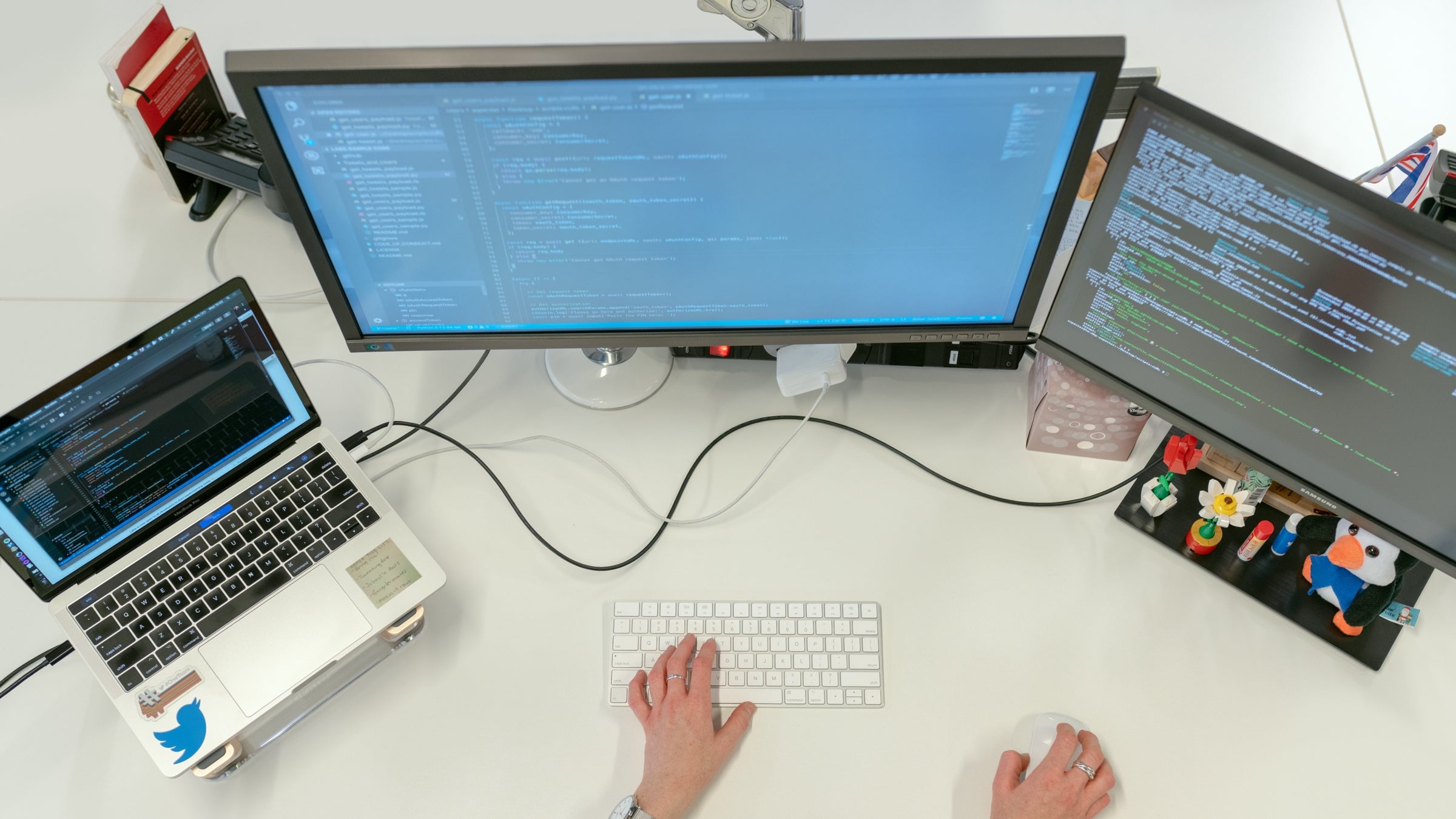Offshore Software Development: Cost-Effective Solutions for Growing Firms
Offshore Software Development: Cost-Effective Solutions for Growing Firms
Blog Article
Dedicated Developers vs. In-House Teams: Which Is Right for You?
The decision in between utilizing committed designers and maintaining an in-house group is a significant one that can affect the trajectory of your projects and total company technique. Dedicated programmers offer a degree of adaptability and specialized knowledge that can be useful for certain, short-term efforts. Conversely, internal groups add to a cohesive business society and a nuanced understanding of long-lasting objectives. By taking a look at critical factors such as budget plan, project extent, and preferred control, you can much better establish which technique straightens with your business needs. Nevertheless, the ramifications of this selection expand beyond immediate outcomes-- think about the wider influence on your business landscape.
Recognizing Committed Developers
The growing demand for specialized skills in the tech sector has caused the emergence of dedicated developers as a practical solution for several companies. These professionals are usually gotten on a job basis, allowing companies to take advantage of particular experience without the long-lasting dedication linked with full time hires. Committed designers are often ingrained within a client's group, providing adaptability and scalability to meet project demands.
This model enables companies to access a global ability pool, which is specifically helpful in a swiftly advancing technological landscape. Dedicated designers can be sourced from various geographical locations, making sure that companies can find the right ability set at affordable prices. They usually bring a wide range of experience and knowledge, having worked with varied projects across different markets.
In addition, devoted programmers can concentrate exclusively on the tasks at hand, boosting productivity and effectiveness. They are equipped to incorporate perfectly right into existing workflows, teaming up closely with in-house teams to attain task goals. This technique not just minimizes the concern of recruitment and training but additionally allows companies to stay nimble, adjusting quickly to transforming market demands and technical improvements.
Advantages of In-House Teams

Furthermore, in-house groups often tend to have a much deeper understanding of the company's goal, values, and objectives. This positioning can improve employee involvement and motivation, as staff member feel much more attached to their job and the organization's success. Additionally, having a specialized internal group enables better placement of goals and methods, as these participants are consistently focused on the business's priorities.
In-house teams likewise promote quicker decision-making procedures, as they can react more swiftly to modifications and challenges. The well established relationships and experience with firm protocols permit streamlined workflows and reduced miscommunication. Eventually, the mix of a cohesive society, placement with organizational objectives, and reliable communication makes in-house groups a beneficial possession for several organizations, specifically those looking to cultivate lasting growth and advancement.
Cost Considerations
When evaluating expense factors to consider, both committed developers and internal teams present unique financial implications for companies. Engaging specialized developers generally entails a pay-per-project or per hour price model, which can be economical for companies with rising and fall task needs. This approach enables flexibility in scaling resources up or down, guaranteeing that companies only pay for the services they require.
In contrast, in-house groups require dealt with prices, consisting of incomes, benefits, and overhead expenses such as workplace and equipment. While this version offers better control and prompt schedule of sources, it may lead to higher lasting expenditures, especially if the workload does not justify a permanent team.
Furthermore, firms must think about the hidden prices connected with employment and training of in-house workers, which can better additional info stress budget plans. In many cases, the moment and sources invested on taking care of an in-house group can detract from the company's core service purposes.

Project Management and Versatility
Task monitoring and flexibility are essential elements that affect the choice between committed developers and internal teams. Committed programmers generally provide a high degree of versatility, enabling companies to scale resources up or down based on job demands. This agility can be particularly advantageous for businesses experiencing varying workloads or those looking for to introduce quickly. Devoted teams frequently have established procedures for taking care look at these guys of tasks successfully, leveraging details methods like Agile or Scrum, which help with iterative progression and flexibility.

Ultimately, the choice between in-house teams and devoted developers rests on the desired level of flexibility and the specific task management requirements. Firms must evaluate their operational characteristics, task intricacy, and source accessibility to figure out which choice aligns ideal with their strategic objectives.
Making the Right Selection
Selecting the best development approach-- internal teams or specialized designers-- requires a mindful evaluation of various elements that line up with a business's strategic goals. Alternatively, in-house groups can offer much better connection and integration with existing employees.
Next, examine your budget. Devoted developers often provide an economical service for short-term jobs, while internal teams may sustain higher long-lasting expenses as a result of salaries, advantages, and overhead expenses. Assess the visit this site degree of control and partnership wanted; internal teams usually cultivate stronger interaction and placement with firm culture.
If prompt outcomes are required, dedicated programmers can be onboarded swiftly, whereas developing an in-house group takes time for recruitment and training. If continual advancement is important, spending in an in-house team might generate far better returns over time.
Final Thought
In verdict, the choice between dedicated developers and in-house teams hinges on project requirements and organizational objectives. Conversely, in-house groups grow a natural society and much deeper positioning with long-lasting goals.
The decision between utilizing devoted developers and maintaining an internal group is a substantial one that can influence the trajectory of your tasks and total service method.Job administration and versatility are crucial aspects that influence the choice in between internal groups and devoted developers. offshore software development.In comparison, in-house teams may succeed in preserving a constant project monitoring framework due to their knowledge with the company's culture and lasting goals. Dedicated programmers commonly provide a cost-efficient remedy for temporary jobs, while in-house groups may sustain greater long-lasting expenses due to wages, benefits, and overhead expenses.In conclusion, the choice between internal teams and dedicated programmers hinges on task demands and business goals
Report this page